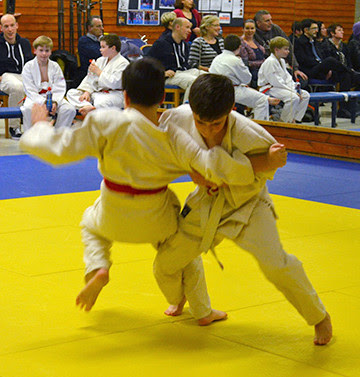Humans are a highly adaptable specie with a great ability to learn and develop expertise. Still, body types generally condition our physical abilities.
Judokas know it is easier to throw someone taller than you and to sweep someone shorter. This is simply due to the relative position of their centers of gravity.
So during his first sparring matches a short guy will generally put emphasis on throws, and a tall one on sweeps. With years of diligent practice, abilities change, expertise comes and a tall fighter might develop a great way to throw an shorter opponent, or a shorter guy might become excellent at sweeping a giant.
However, at the beginning, in order to develop self confidence in students, a teacher should adapt his teachings according to their physical abilities and be able to teach both types of techniques, independently from his own preference and body type.
The same applies to spiritual practice. Dharma gates are boundless, we vowed to enter them. We should be able to teach a variety of practices. You may liken the Buddhist path to the ascension of a mountain. On your way to the top, several trail of various difficulty are available. Zen in essence is about getting off those trails to directly climb to the top. Not everyone can do this. Some people will fall off the rocks, some will get lost on their way.
 |
| Gravity is not just a theory... |
I believe a practice leader should know how to teach different path to different disciples at different stages of progress. Before teaching them how to climb rocks, lets teach them how to walk the trail. The Buddha first talked about the 3 Noble Truths : Dukkha, Anicca, Anatta. Emptiness came much later... We should keep this in mind.
What are your thoughts ?


